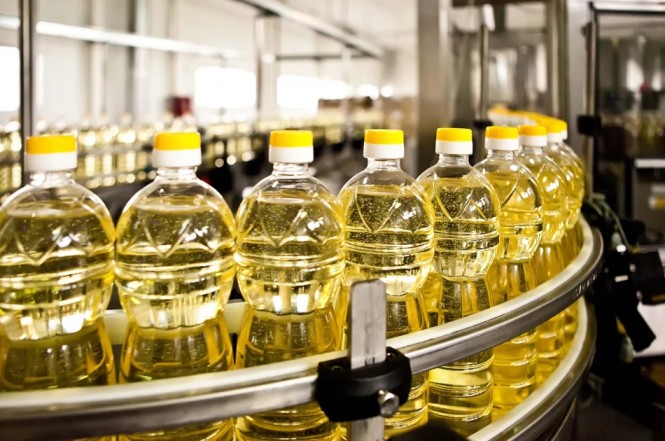MPs call for independent testing standards for imported edible oils

The committee also toured East African Storage Limited (EASL), one of the four facilities that manage imported edible oil for manufacturers and importers.
The National Assembly Departmental Committee on Finance and Planning has urged the Kenya Revenue Authority (KRA) to establish independent testing parameters for imported edible oils.
This call comes in light of concerns that unscrupulous traders are exploiting existing testing criteria to evade taxes.
More To Read
- Weak taxation of wealthy costs Kenya Sh130 billion annually, report finds
- Ex-Nairobi governor Sonko gets relief as Tribunal directs KRA to unfreeze his bank accounts
- Businesses granted 30-day relief on long-stay container charges at Mombasa port
- Meta to deduct 5 per cent tax on Kenyan creators’ earnings in 2026
- National Treasury says weak revenue, high debt repayments straining Kenya’s budget
- Government shifts cargo clearance to Nairobi, Naivasha in bid to decongest Mombasa Port
The committee made this announcement during a familiarisation tour of facilities handling edible oil imports at the port of Mombasa on Friday.
This visit is part of an ongoing investigation into allegations of tax revenue losses estimated at Sh64 billion due to the misdeclaration of cargo imported by Ms. Louis Dreyfus Company Asia PTA Limited and Ms. Louis Dreyfus Company Kenya Limited.
During their meeting with KRA officials, led by Chief Manager of Port Operations Swalleh Faraj, the committee sought clarity on the clearance process for edible oils arriving by vessel.
They raised concerns about the lab testing procedures, especially in cases where KRA suspects that the cargo does not match the declaration made in advance by the shipping line.
The committee led by its chair Kuria Kimani (Molo MP) discovered that multiple government agencies, including the Kenya Bureau of Statistics (KBS), Agriculture and Food Authority (AFA), and Port Health, are involved in cargo clearance based on their standards.
However, the committee members highlighted a critical gap: KRA's tests only categorize edible oils as either crude or refined, creating potential loopholes for importers to declare semi-refined oil as crude to benefit from lower taxation.
"We need to develop specific standards for KRA testing so that importers don't take advantage of the existing parameters to import semi-refined oil while paying taxes for crude oil," Kimani said.
Further complicating matters, lawmakers questioned why KRA had sampled only six out of the sixteen vessels arriving at the port for testing over the past year.
"Don't you think you should have sampled all the vessels? Why only six?" questioned Kimani.
The committee expressed concerns that these practices not only undermine tax collection but also threaten local manufacturing jobs, as cheaper refined oils imported under the radar could displace locally produced products.
One vessel in particular, the MT Atrotos, which arrived on May 22, 2024, drew the attention of MPs Joseph Makilap and Julius Rutto.
They demanded the loading survey report for this vessel, citing discrepancies between the cargo manifest and what actually arrived at the port.
In response, Swalleh assured the committee that tests on all six sampled vessels confirmed they contained only crude oil.
Other Topics To Read
He explained that the scope of their probe was limited to vessels processed by Louis Dreyfus Company (LDC), noting that more than sixteen vessels delivered edible oil during the period in question.
The lawmakers expressed skepticism, questioning the coincidence that all tested vessels were categorized as transit goods.
"What a coincidence that all vessels tested had transit goods?" queried MPs Rutto and Kimani.
Swalleh clarified that KRA is required to receive only the manifest of cargo before its arrival, not a detailed loading survey report.
To better understand the clearance process, KRA officials walked the committee through the steps from product discharge into facility tanks to customs checks, which included document verification and product evacuation.
The committee also toured East African Storage Limited (EASL), one of the four facilities that manage imported edible oil for manufacturers and importers.
Top Stories Today













































